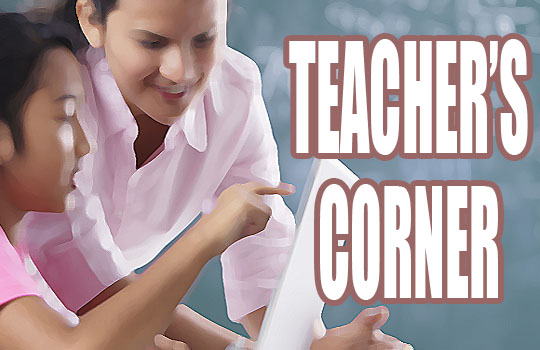by: NOVALYN S. SIMANGAN,
Master Teacher I,
SALINDINGAN ELEMENTARY SCHOOL,
Salindingan, City of Ilagan, Isabela
READING is a basic life skill. It is a cornerstone for a child’s success in school, and indeed, throughout life. Without the ability to read well, opportunities for personal fulfillment and job success inevitably will be lost. It is a fundamental requirement in any field. While reading is the most important thing a child can learn in school, this seems to be the biggest problem in every school.

Because of the growing numbers of non-readers, the school finds way to come with this program. The project proponent developed a reading mate-rial to be used for non-readers. Tapping generous stakeholders to share ample amount to augment the resources needed for the reading material. Reading is a gateway towards student excellence in class because all concepts will be understood well, and enrichment/reinforcement activities will be accom-plished correctly in other disciplines like science and Mathematics which are difficult subjects for most pupils.
To detect the reading difficulties of children means knowing their reading performance at the expected stage the learners are. At that stage, the efficient teacher should be able to help children to the fullest so that these children may experience enjoyment or even fulfillment in their lives. Recognizing the significance of reading,“Reading Excellence for the Youth: An Intervention Material” was conceptualized by the proponent for the benefit of all non-readers from Grade III to Grade VI of the school. It has three aims which are to eliminate the non-readers, develop the vast number of non-readers and to develop their self-confidence and sense of belonging. To achieve this aims, there were varied meaningful activities done. First, there was profiling of pupils from Grade III to Grade VI through the conduct of the Phil-IRI by the class advisers who conducted the pre-test. Second, school-based reading program was enhanced and implemented religiously wherein the period for developmental reading was reflected in the class program. Third, Teachers were trained for reading instructions during the school-based LAC sessions in English Language and Literacy. Fourth, the school reading coordinator and the proponent conducted the reading intervention to non-readers with the assistance of the school head using the conceptualized reading material.
As a master teacher, one of our duties is to initiate projects and programs that will enhance the curriculum and its delivery. The main concern in the school is the reading ability of the pupils. It is evident, not only in our school but most of the schools, the problem teacher encounter in terms of reading capability of pupils. As much as we wanted to teach only reading, we are following certain competencies DepEd has given. Such competencies hinder us from focusing children to teach how to read.
For that, I might say that the intervention/innovation conducted was effective that is why our school head advised me to let the other teachers with non-readers in their class for the school year 2018-2019 to adopt the conceptualized reading material as support to the reading program of the school. The project did not stop in teaching reading at school; At home, parents were encouraged to have at least one to two hours of reading with their children.
The proponent has recommended the use of Reading Intervention Material “Reading Excellence for the Youth” as a learning material be adopted by Grade Teachers with non-reader pupils; that a parallel reading program should be conducted year round which will ensure more time for building their reading skills ability, and that teachers are supposed to provide pupils with varied reading materials and several teaching strategies to support pupils.
Teachers should use pictures and words in picture storybooks to comprehend pupils’ reading on text. Children who struggle to read can be helped with well-planned, intense, individualized intervention program; that interaction and input of partners, professional colleagues, and parents of the pupils are helpful and insightful, and collaborate with colleagues in the conduct and application of the school reading program to enrich knowledge of content and pedagogy.


Comments are closed.